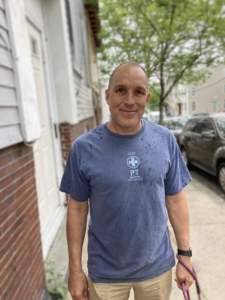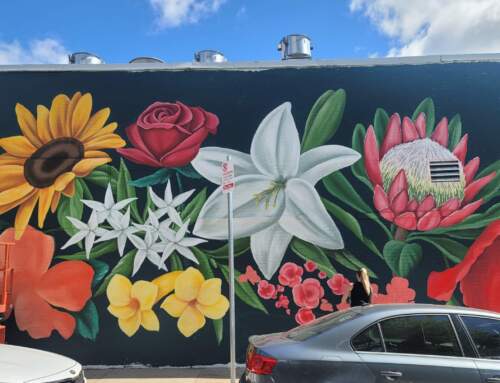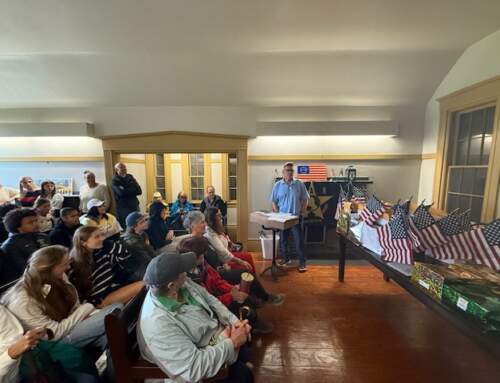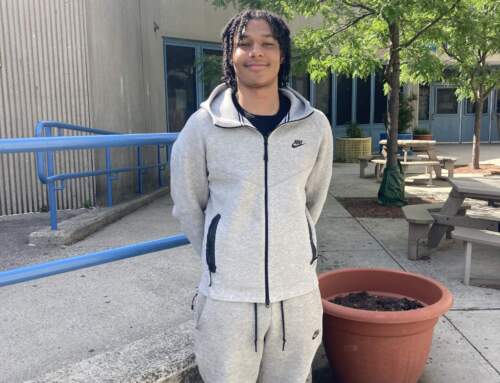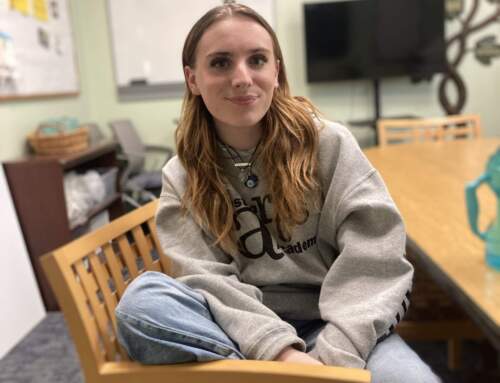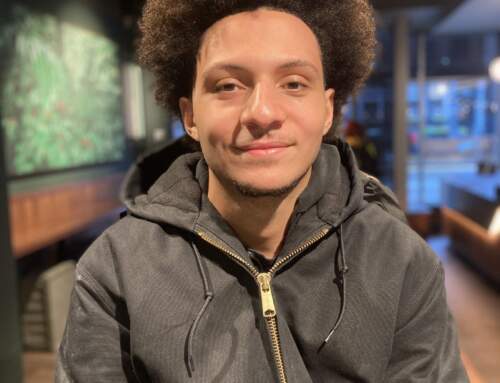By Carol Masshardt
Armando Correa’s work is all about breath. As a Respiratory Therapist for the past sixteen years plus at Tufts Medical Center, he thinks about the rhythm of breath, how to evaluate it, and establish adequate flow regardless of a patents condition A life can depend on, and never has his expertise been more needed than in recent years.
“I was in the hospital as a kid with asthma,” he said. “I can relate to not being able to breathe. Now, if I’m on the floor in non-critical situations, I get to know patients. They’re scared, sometimes angry, and I hope to alleviate their anxiety.”
Experienced and focused, Correa, 56, exudes a caring capability and is someone anyone would want in the frightening situations of respiratory problems. “Even when you are on a ventilator you must understand regulation to establish an adequate respiratory ratio. It’s challenging and interesting,” he said
Armando Correa could have stayed the course with the Public Relations degree earned at California State/Fullerton, and continued to make LA his home, but his direction changed professionally and geographically.
“I really liked the communications part of that field,” he said, and that is evident in his ability to speak with ease and depth. “But I didn’t like the advertising. I found it hard to be creative when I wasn’t interested in the product. I had friends who were nurses, but the whole head to toe didn’t seem right either. I was lost,” he said reflecting on his early adult years.
He may have been adrift, but it wasn’t for long. He explored options, talked to friends, investigated possibilities, and eventually became certified in Respiratory Therapy at the highest level, and moved from California to Boston, beginning at Newton-Wellesley Hospital until he started at the more diverse downtown hospital.
“I fell in love,” he said, and his connection to Tufts Medical Center is that amazing and simple. “I needed more of a challenge and at Tufts I did Pediatric Intensive Care, in addition to work with adults and even neo-natal. Here’s what I like. I ‘m constantly learning. There are always new machines, medications and it evolves in so many new ways. I’m always moving and never sit still,” he said without even a hint of complaint.
Armando Correa worked throughout COVID and continues with varied and challenging shifts and constant patient and hospital needs. He speaks about that period of 2020-21 with both characteristic eloquence and the directness and honesty expected of a healthcare professional.
“COVID made me hyper-sensitive to touching and transmission. Everything was accentuated and there was a sense everyone was infected. We were the people who were right in the faces of sick patients. We used much more protection. Patients were requiring ventilation on a scale I had never seen, and everything changed. Regular floors were turned into Critical Care. It was scary, and people quit or wanted to,” he said. “But patients who were aware needed familiar faces, even if we were so covered up. There were just so many changes for everyone.”
Leaving wasn’t in the cards for this man, who shares his life in South Boston with partner, Steve, and dog, Ruby. He took the bus to work every day and “even that I would think differently about now,” he said. Despite the conditions and the uncertainty and risk, he went to work when many had the luxury to stay home.
“This may sound corny,” he said “but I was part of a team. It was like a war. We were in it together and that sense of camaraderie allowed us to do what had to be done and it was different than what it had been. Ironically, work became a safe place,” he said.
The experience of these past tumultuous years changed most of us in ways often not easily answered, but he doesn’t hesitate. “I stopped living in fear, and that was the change. We can do this, I thought. We were all essential but especially the nurses, the nurses, the nurses,” he said, and again talked team.
Armando Correa is anything but corny, and he appreciates every breathing moment and how it can be achieved even under dire circumstances. His search for challenge and a gift for communication led to Tufts Medical Center and a pandemic that became his “war” and ultimate service.
